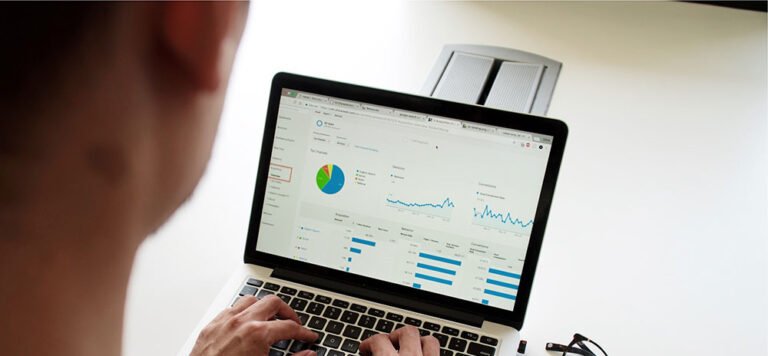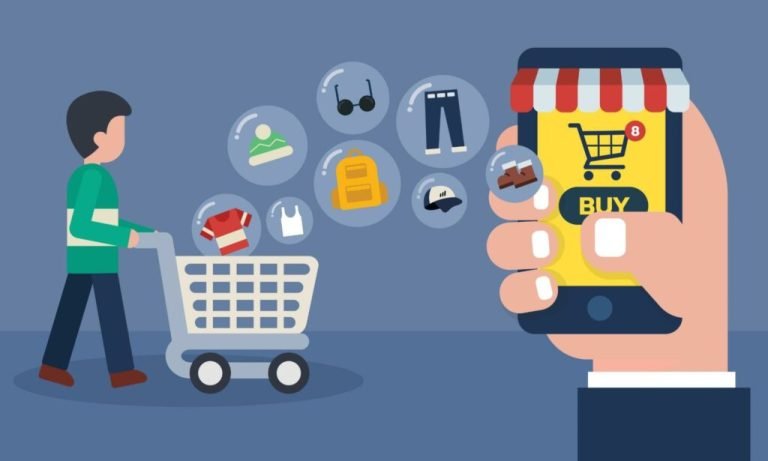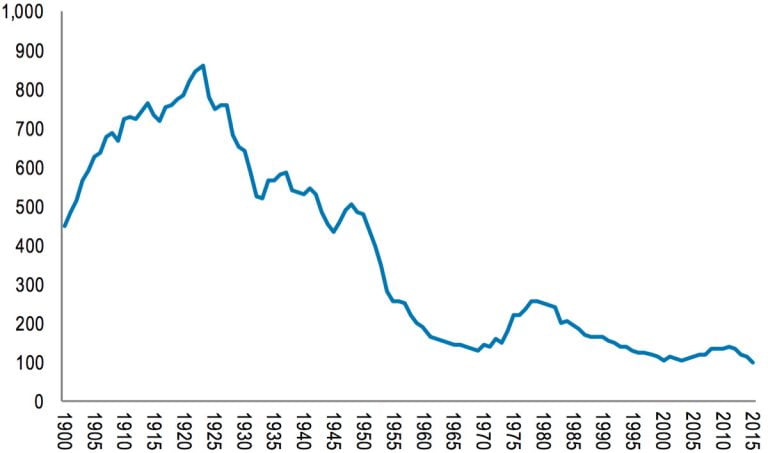
Blockchain is one of the most radical technologies in the contemporary world that will have an enormous impact on how we do business.
As per market research report in 2018, the blockchain market is expected to grow from $1.2 billion in 2018 to $23.3 billion by 2023 at an impressive Compound Annual Growth Rate (CAGR) of 80.2% during the 2018–2023.
There are several industries – both financial and non-financial – that will encounter blockchain’s industry-disrupting capabilities. One such industry where blockchain is going to be leading-edge is the retail business.
Also Read: How To Scale The Retail Business Using Inventory Loans
What is blockchain technology?
Table of Contents
Blockchain, which is also referred to as ‘distributed ledger technology’ (DLT), is a chain of a list of records called blocks that contain information.
These blocks are linked using cryptography and contain a cryptographic hash of the previous block. Originally, blockchain was described in 1991 by a group of researchers who intended to timestamp digital documents so tempering or backdating the data won’t be possible.
In simple words, a blockchain simply records data in chronological order. It offers a shared ledger where all the transactions are recorded and both the parties can see these transactions.
Also Read: What Is The Future Of POS Technologies In The Retail Business?
How does blockchain work?
The data on the web is never stored centrally, but it is distributed across multiple computer networks around the world. Blockchain shares and syncs data across multiple computers.
Each block contains some data, the hash of the block and the hash of the previous block such as who is making the transaction, the total amount, dates, times, or any other relevant transaction information.
And, because the database is distributed across multiple systems, it becomes impossible to make any changes, ergo it becomes permanent.
Also Read: How Smart, Wireless POS Solutions Are Remodeling India’s Retail Market
How Blockchain technology will change the face of retail business?
A traditional supply chain management application only allows interactions between the retailer and the supplier. Beyond that, the retailer doesn’t have any visibility.
Now, once an order is placed, the retailer will have to wait for updates from the supplier on where these products are and what the product status is.
Blockchain technology not only provides retailers but also customers end-to-end invisibility. It provides better customer experience and for retailers, it streamlines the exchange of information.
The potential for blockchain to help the retail business is huge. It helps in protecting consumers from fraudulent transactions and building consumer trust.
Also Read: Top 7 Mistakes Retailers Make When Choosing A POS
What are the applications of blockchain technology in the retail business?
Some potential uses blockchain in retail business includes:
Smart contracts
Blockchain can be used to create a smart contract that holds back funds until everyone is satisfied. It can also be used to reduce other types of fraud and build consumer trust by settling disputes instantly.
Supply chain visibility
It provides real-time information about the product to the customer. Companies will be able to recognize which stock of the product is causing issues and they will be easily able to rectify the problem.
Since the chain is updated in real-time, the bad or damaged product can be identified and restricted from entering into the supply chain, thus reducing the product recall.
Also Read:Big Data And AI – The Promise Of Better Transformation For Retailers
Transparency
In the blockchain, even a small change is registered in the ledger, and it is visible to both parties. The customer can also follow the product’s journey from date of manufacturing to the current location and other minute details.
Minimizing fraud
It will improve customer loyalty programs by issuing loyalty coupons on the blockchain network. The customer will also be able to track gift card balances and manage loyalty rewards.
Protecting customers’ personal data
Blockchain puts the consumer in control of his data. They will be able to know who accessed their data and what type of data is being shared. It helps businesses with compliance to the EU’s General Data Protection Regulation (GDPR).
Avoidance of counterfeit products
Suppliers and retailers, with the help of data, will be able to avoid counterfeit products to enter into the inventory.
Traceability
The consumer will be able to track the origin of the product as well as the current location.
Also Read: Artificial Intelligence- Transform The Retail Client Experience
What are the benefits of blockchain technology in the retail business?
Blockchain technology will change the future of the retail business landscape. This technology brings in customers’ trust, minimizes fraud, and helps in conducting transactions in a transparent manner.
Industry giants such as Amazon, Alibaba, Walmart as well as eBay have already taken the blockchain technology route to deal with the challenges of retail business.
Apply For Business Loan For Retail Store
Bottom Line
Even though blockchain technology is at a nascent stage in the retail business, it will play a huge role in the future.
The blockchain technology in retail has the potential to store transaction information, execute contracts and payments, build consumers’ trust by providing transparency, prevent counterfeiting of goods, and ensure product authenticity.
Indifi believes in helping small businesses grow by offering loans to those that have potential and intent. Most such businesses have little or no access to financing from traditional institutions such as banks, or lack either collateral or finance data trail to access a loan.






